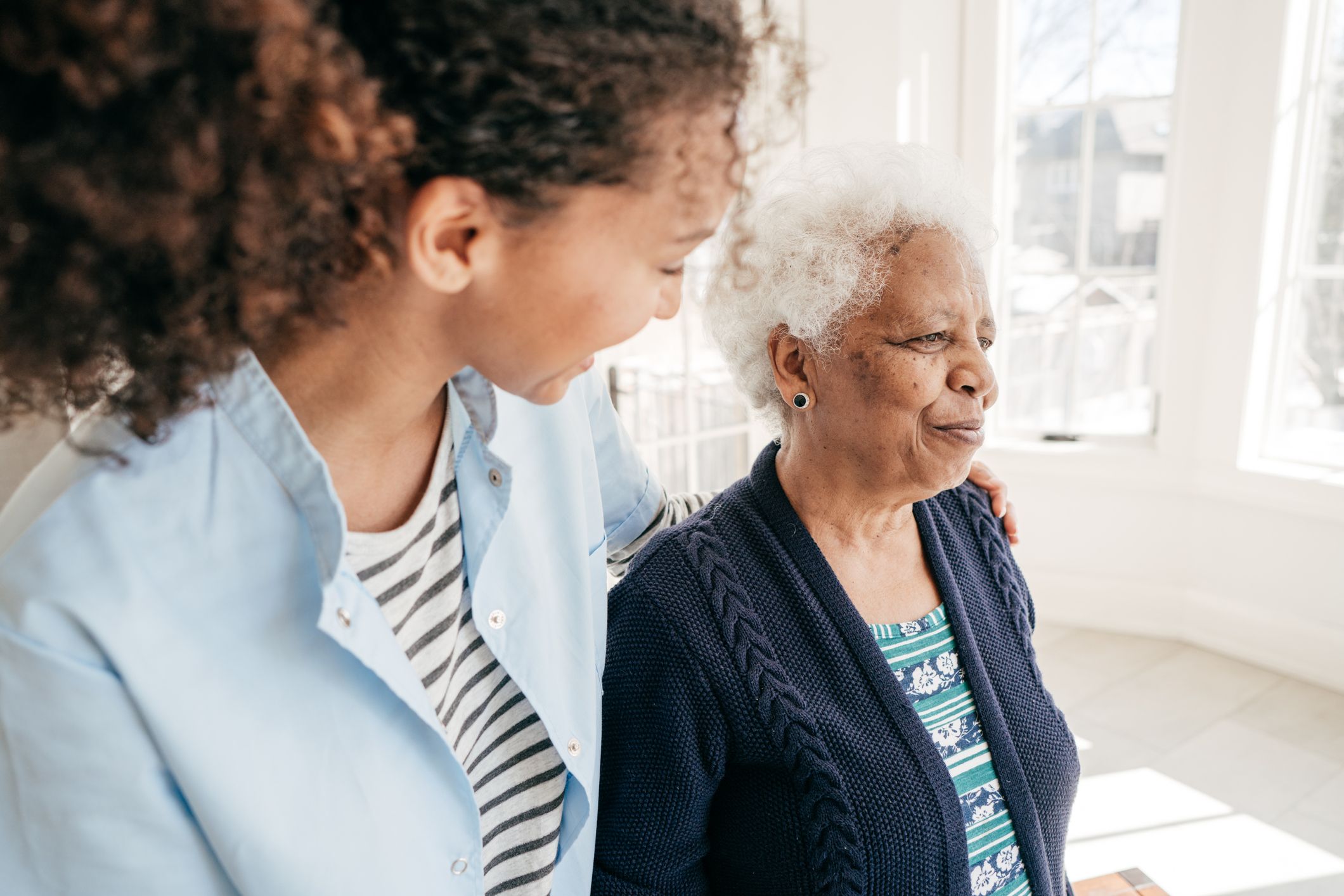By Christine Verini, RPh, Board Chair, HealthyWomen
In many ways, unpaid caregivers are the glue that holds our society together.
Whether caring for young children, an ill or aging relative at home or both, the need for unpaid care from a trusted family member is likely the key to making it all work. Still a role typically held by women, caregivers fill a crucial role and yet they rarely get sufficient support for their efforts.
Of course, caregiving is not a completely thankless duty. It's important to value the quality time spent with young children or aging parents. However, it can take a serious toll on finances, careers and even health.
According to the National Alliance on Caregiving, about 43.5 million Americans serve as unpaid caregivers each year, generating "free" labor valued at more than $375 billion. Unpaid caregivers, of course, don't actually receive any of this money. Indeed, many lose money, especially those compelled to quit a paid position or take unpaid leave from a job in order to help their families.
Even with a supportive employer, caregiving can cause extreme stress, especially when the burden falls heavily on family members. I know this firsthand, as years ago I was a caregiver. Being a caregiver was one of the most rewarding experiences of my life because I was able to get closer to someone I loved, but worrying about the day-to-day wasn't easy.
Research shows that caregivers often experience depression and anxiety, along with increased incidents of weight gain, digestive problems and high blood pressure, among other physical ailments.
The need for unpaid caregivers is not going to change any time soon. If anything, it's only going to increase as our nation's population ages. What can change, however, is how society treats caregivers—and how caregivers care for themselves.
To start, employers need to look for ways to be flexible and supportive, whether that means expanding leave policies or allowing for remote work. No one should feel guilty—or worry that their job is in danger—as a result of taking time off to help someone they love. If legislation in favor of better workplace policies is being considered in your state, make an effort to advocate for it. Employers can also help by compiling a list of resources for caregivers, including how to find psychosocial services, support for shared decision-making, and education regarding managing medications, symptoms and side effects.
At home, family and friends should aim to find ways to help shoulder some of the burden of care. I encourage anyone who needs support to use tools like CaringBridge, Meal Train or My Cancer Circle (if your loved one has cancer) to empower and organize helpers to focus on the specific tasks that will make a real difference.
Lastly, don't ignore your own health. I have often heard that when it comes to caregiving, you should apply the airplane rule of putting your oxygen mask on before helping others. Consider joining a support group, schedule your regular checkups and screening tests (and don't cancel!), and ask other family members and friends to step in to give you an occasional break.
Need help getting started? We're here to help. You can find more resources for caregivers, including tips on self-care, here.
***
Christine Verini, RPh, is HealthyWomen Board Chair and Chief Operating Officer for CancerCare, a 75-year-old nonprofit focused on providing free, professional support services and information to help people manage the emotional, practical and financial challenges of cancer. In 2019, she was named to the PharmaVOICE Magazine's 100 Most Inspiring People list, recognizing those who have made important contributions to the life-sciences industry, Ms. Verini previously served as Vice President of Corporate Communications and Advocacy at Eisai, a pharmaceutical company, where she was instrumental in creating Magnolia Meals at Home, providing meals at no cost to eligible patients and families living with cancer.


